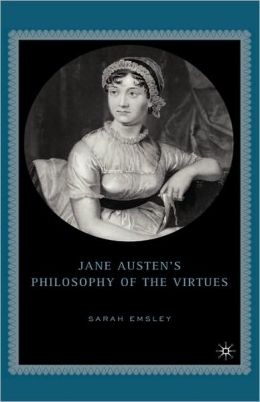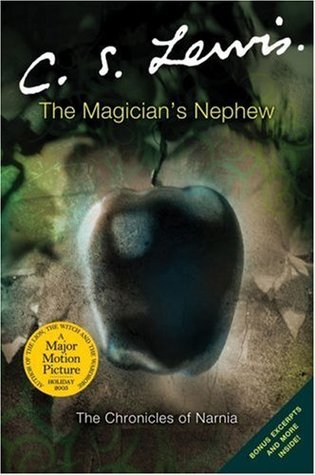I'm tempted to include rereads, since rereading a beloved book is the best kind of reading. I did have some wonderful rereads this year: Hamlet, Richard II, Pride and Prejudice for its bicentennial, Austen's unfinished works, the first four Anne Shirley novels, and (of course) Jane Eyre. However, those works would crowd out most others, so, with one exception, these are all books read for the first time in 2013. The list is evenly split between fiction and non-fiction, but women authors, unsurprisingly, predominate.
Busman's Honeymoon by Dorothy Sayers
Sayers is the author whom I read the most this year. I looked forward to Gaudy Night, of which I'd heard many things, as the pinnacle of Sayers' work. It was wonderful, but it was Busman's Honeymoon that shook and affected me. The setting is simple: Lord Peter Wimsey and his new bride, mystery writer Harriet Vane, arrive at a country cottage for their honeymoon. Bodies, however, seem to follow the hobbyist detective and he's soon caught up in an investigation, with the aid of a superintendent almost as interested in identifying Peter's literary quotations as in identifying the murderer.
The novel's real power comes from its portrayal of the pain, vulnerability, and joy of creating a marriage of genuine equality and respect. The epistolary introduction featuring Peter's inimitable mother is hilarious, the many John Donne references are both intelligent and evocative, and the mystery is sufficiently mysterious.
The Sunne in Splendour by Sharon Kay Penman
Jane Austen's Philosophy of the Virtues by Sarah Emsley
After reading several of Emsley's articles in Persuasions journal, I desperately wanted to read her book-length dissertation on Austen. My blogging friend Esther lent me the book and it did not disappoint. I converted my numerous pages of notes into posts on each chapter, which led to some wonderful discussions of Austen's faith and philosophy.
The Green Gables Letters: From L.M. Montgomery to Ephraim Weber 1905-1909
This is probably my favourite nonfiction book of the year, so naturally I don't know where to begin. I reread four of Mongtomery's novels and a book of literary criticism of Anne of Green Gables over the fall, but this surpassed them all. Montgomery's letters to her Alberta pen-pal, Ephraim Weber, are intimate, yet elegant and profound. She easily switches from writing advice to contemplations of immortality. Jokes and anecdotes abound, but do not obscure the daguerreotype of a woman living in the minutiae of her responsibilities. Her frank disavowal of orthodox Protestant doctrines -- from eternal torment to the virgin birth -- does not lessen her joy in the poetry and wisdom of the Bible. In short, Weber and Montgomery were clearly such kindred spirits that she was not, as in some of her novels, constrained by public expectation or judgement. She truly found her sentence and it is lucid and strong. Now I just have to find out if the library will sell me this casket of gems.
Adam Bede by George Eliot
This was the only George Eliot novel I read this year and I admit it shows a few rough edges, easily excused in a firstborn. As in Middlemarch, each character is a part of an intricate web of moral influence. From the Methodist woman field-preaching, to scenes among workmen, Eliot's attention to the lives of "common people" is Wordsworthian. Indeed, the plot as well the descriptions is likely derived from Wordsworth's "The Thorn". Excruciatingly vain and naive Hetty Sorrel is seduced by the young squire of the county. They, and those who care for them, soon learn that "our deeds determine us as much as we dertermine our deeds" and consequences of unthinking moments may plunge us into hellish torments. Eliot's insight, wisdom, humour, and power of creating living characters stayed with me long after I layed the book aside.
The Handmaid's Tale by Margaret Atwood
One day I felt a sudden urge to read a dystopian novel and pulled this out of my stacks. It was a painful and draining read, almost without a glimmer of hope. However, it gave me the language to express my horror and fear when I soon after read about the extremes of the Christian Patriarchy movement.
The Magician's Nephew by C. S. Lewis
Coming to C.S. Lewis as an adult, I'm perhaps hampered by analysis. Last week's reading of The Horse and His Boy was made slightly uncomfortable by Lewis' emphasis on skin color and other seemingly-racial characteristics in dividing up the good and bad factions . It could be argued that the allegory of The Magician's Nephew is a bit obvious, but the thrills of joy I experienced watching the creation of a new world, and "meeting" Aslan justify the novel's inclusion on this list.
Mightier Than the Sword: Uncle Tom's Cabin and the Battle for America by David S Reynolds
Uncle Tom's Cabin is quite a flawed novel, yet it had a tremendous influence on public opinion, and some claim helped to launch the Civil War. Reynolds' exploration of the stories behind the novel, and of the novel's subsequent reincarnation in stage and film teaches much about the process of creating literature and its power once made public. I appreciated the book most as a cultural history of race relations, religion, theatre, literature, and story in America over several decades.
The Seventh-day Ox and Other Miracle Stories from Russia by Bradley Booth
Since age eight, it seems I've read a score of books about faithful believers in prison camps. This book stood out for the incredible suffering endured by the pastor in the titular story. For several years he spent ten day stretches confined in a small crate for his refusal to work on the seventh day; when finally allowed to prove to the prison warden that he could accomplish seven days' work in six, a recalcitrant ox made it seem that his trials had just begun. It's a story full of the lows of man's inhumanity to man, the incalculable highs of God's sustaining power, and the lighter highs of the humor animals bring to our lives.
A Room of One's Own by Virginia Woolf
My last book is a cheat, since it is a reread. However, I first read it four or five years ago, and maybe I wasn't mature enough for it. This time reading it was pure delight, and I was in constant awe of Woolf's creative and strong thought process. I'm still trying to reconcile her insistence that women should write in their own distinctly female "sentence" with her appropriation of Coleridge's idea that writing of true genius is androgynous. Maybe to fully understand and absorb such a unique work I'll have to do as I once heard Emma Thompson did -- keep it in my purse and pull it out to reread repeatedly.
Some of you are being negligent bloggers, and with less excuse than laptop-less me. :D What were your favourite books of the past year? What are your reading plans for 2014? One of mine is to count by pages read, rather than books completed. This is partially so I'll grant myself the freedom to give up on a badly written or boring book without guilt. I'll also count when I read a magazine straight through, as I often do with one on religious Liberty. Here's to a copious reading year!
 There is no frigate like a book
There is no frigate like a book




